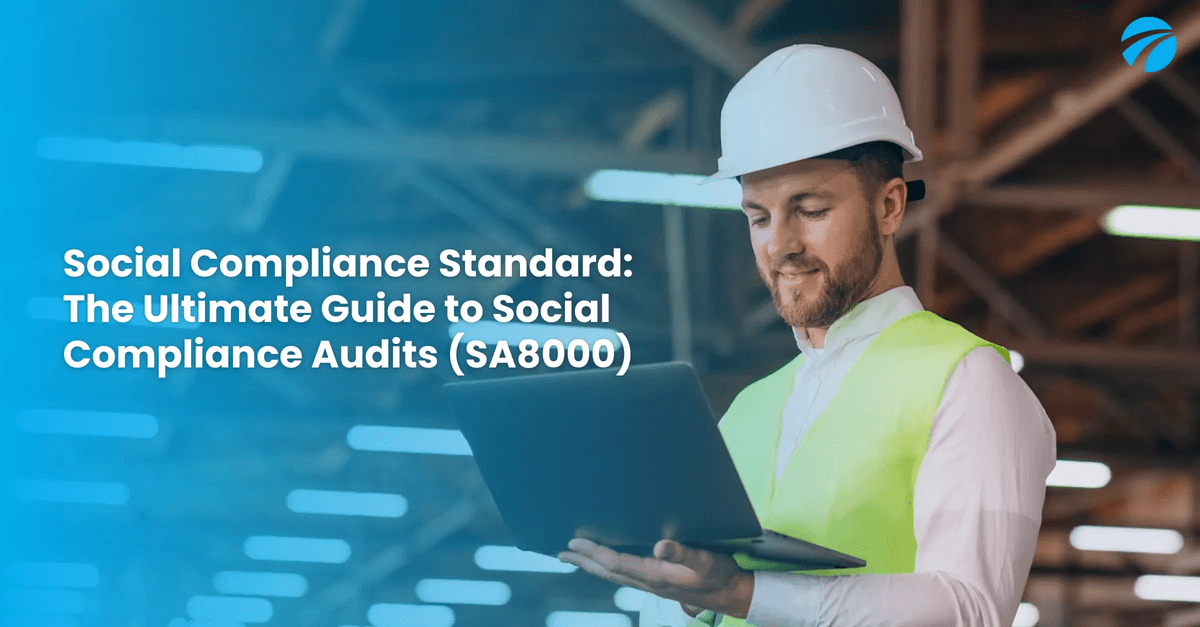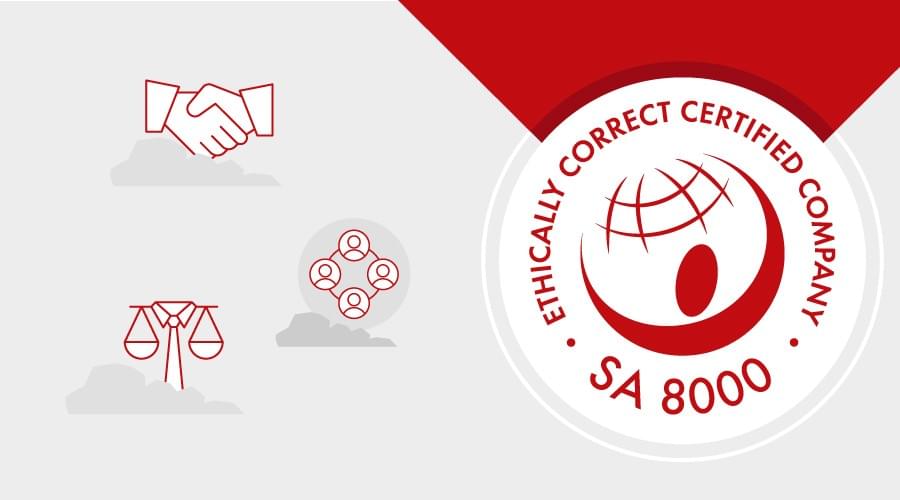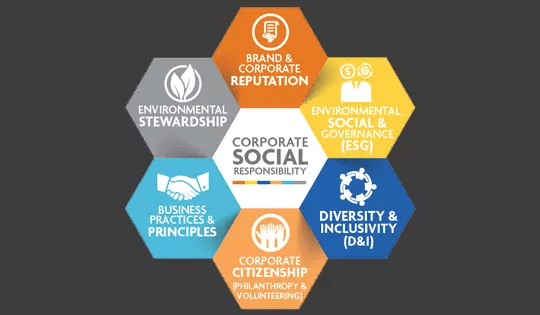The Uncomfortable Truth You'd Rather Not Think About
Imagine this scene: Your customer, wearing your brand's latest product, is scrolling through social media when they see a viral exposé about the horrifying conditions in the factory that made their favorite new purchase. Cue dramatic music, a hasty removal of your brand's tag from their shirt, and a public social media post declaring they'll never buy from you again.
In today's hyper-connected world, your supply chain's dirty laundry isn't just visible—it's being live-streamed in 4K resolution directly to your customers' devices. Welcome to 2025, where ethical manufacturing isn't just nice to have; it's the difference between business success and becoming the internet's main character for all the wrong reasons.

Why Social Compliance Audits Matter More Than Your Marketing Budget in 2025
The global business landscape has transformed dramatically. Consumers aren't just buying products anymore; they're conducting background checks on your ethics like they're interviewing you for marriage to their firstborn child. They're not just purchasing a t-shirt; they're investing in the story of how that t-shirt came to be—preferably one that doesn't include child labor, sweatshops, or environmental devastation.
Social compliance audits have become the critical shield protecting both workers and your brand's reputation in a world where "We didn't know" has the same credibility as "My dog ate my homework."
What Exactly is a Social Compliance Audit? (Besides Your Get-Out-of-PR-Disaster-Free Card)
A social compliance audit is essentially a comprehensive wellness check for your factory's soul. Conducted by independent professionals who've seen things that would make your HR department faint, these audits ensure that manufacturers meet international benchmarks for:
- 🤝 Worker Rights (Yes, workers are people too, shocking as that may be)
- 💼 Fair Employment Practices (More than just "we don't actually chain them to their workstations")
- 🛡️ Workplace Safety (Beyond "try not to die while making our products")
- 💰 Fair Compensation (As in, enough money to actually live on, not just theoretically survive)
- 🚫 Prevention of Exploitation (Because treating humans like disposable resources went out of fashion with feudalism)
The SA8000 Standard: The Gold Star Your Factory Desperately Wants on Its Forehead
The SA8000 standard has emerged as the gold standard for social compliance—think of it as the Olympics of not being terrible to your workers. It covers critical areas such as:
- Freedom of Association: Protecting workers' rights to unionize without suddenly finding themselves "redundant"
- Working Hours: Ensuring schedules that acknowledge workers are humans who occasionally need to sleep
- Non-Discrimination: Guaranteeing equal opportunities regardless of characteristics people didn't choose
- Fair Wages: Mandating legal minimum wages and proper overtime compensation that can actually buy food AND shelter (revolutionary concept!)
- Child Labor Prevention: Strictly prohibiting the use of children as tiny, inexpensive workers
- Forced Labor Elimination: Preventing employment practices that belong in dystopian novels
- Disciplinary Practices: Ensuring workers are treated with dignity, not like misbehaving pets
- Health and Safety: Maintaining environments where "danger pay" isn't an expected benefit

The Real Cost of Non-Compliance (Or: Ways to Tank Your Business While Being a Terrible Human)
In 2025, the consequences of overlooking social compliance are severe:
- Reputation Damage: Instant global backlash through social media
- Financial Losses: Potential boycotts and lost contracts
- Legal Risks: Potential lawsuits and regulatory penalties
- Ethical Compromise: Moral failure in global business practices
How Audits Are Conducted (No, You Can't Just Bribe the Auditor)
Modern social compliance audits are sophisticated processes that make tax audits look like casual conversations:
- 🔍 Comprehensive facility inspections that find the violations you thought were cleverly hidden
- 📄 Detailed documentation reviews that reveal the creative accounting in your overtime payments
- 👥 Confidential employee interviews conducted safely away from that manager who keeps making throat-slitting gestures
- 💻 Advanced tracking technologies that make circumventing standards about as easy as outrunning a satellite
Emerging Trends in Social Compliance for 2025 (Or: The Future of Not Being Awful)
Technology-Driven Transparency
- AI-powered audit tracking that spots patterns of non-compliance you thought were too subtle to notice
- Blockchain verification of worker conditions creating immutable records that can't be "accidentally" lost
- Real-time compliance monitoring systems that make surprise factory clean-ups before audits as effective as using a feather duster in a wildfire
Global Collaboration
- Increased international cooperation because exploitative practices are now a global game of whack-a-mole
- Standardized global compliance frameworks making it harder to country-shop for lax labor standards
- Shared databases of ethical manufacturing practices so your factory's violations follow you like your embarrassing high school nickname

Protecting Your Business: Proactive Steps (That Don't Include Burning the Evidence)
- Regular Audits: Conduct frequent, unannounced inspections because factories that only follow standards during scheduled visits are like children who only brush their teeth before dentist appointments
- Transparent Reporting: Share audit results publicly, because hiding problems is so 2010 and transparency is the new black
- Continuous Improvement: Develop long-term compliance strategies because ethical manufacturing is a marathon, not a sprint to fool auditors
- Technology Integration: Leverage modern compliance tracking tools because spreadsheets and handwritten notes are about as reliable as weather predictions from your grandpa's trick knee
The Bottom Line (Both Moral and Financial)
Social compliance audits are no longer optional—they're as essential to your business as having an actual product to sell. In 2025, ethical manufacturing isn't just about avoiding negative consequences; it's about creating positive change and building trust with consumers who have the moral expectations of disappointed parents and the purchasing power to make you feel their disappointment.
Ready to Transform Your Supply Chain Before Someone Makes You Famous for All the Wrong Reasons?
Don't wait for a crisis to strike or for that investigative journalist to start asking uncomfortable questions outside your factory. Implement robust social compliance practices today and become a leader in ethical global business. Or at least avoid becoming a case study in business ethics classes for the next generation.
🌐 Contact our ChinafulLink sourcing experts for a comprehensive supply chain audit! Because finding problems before they find you is just good business.